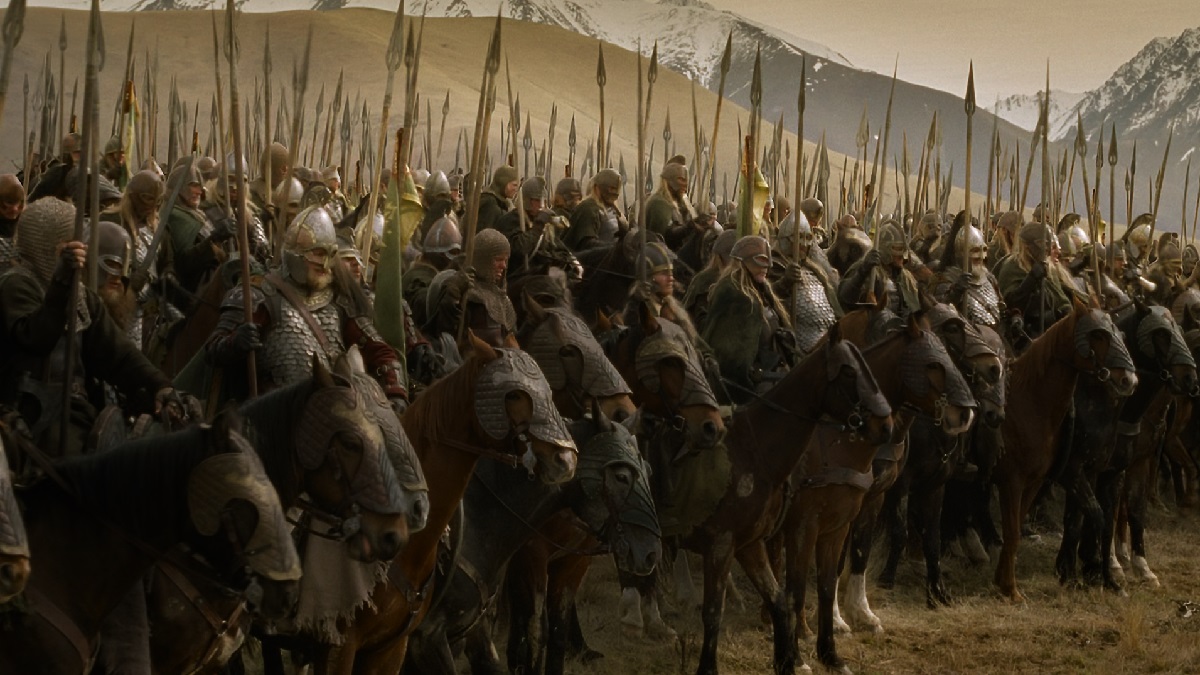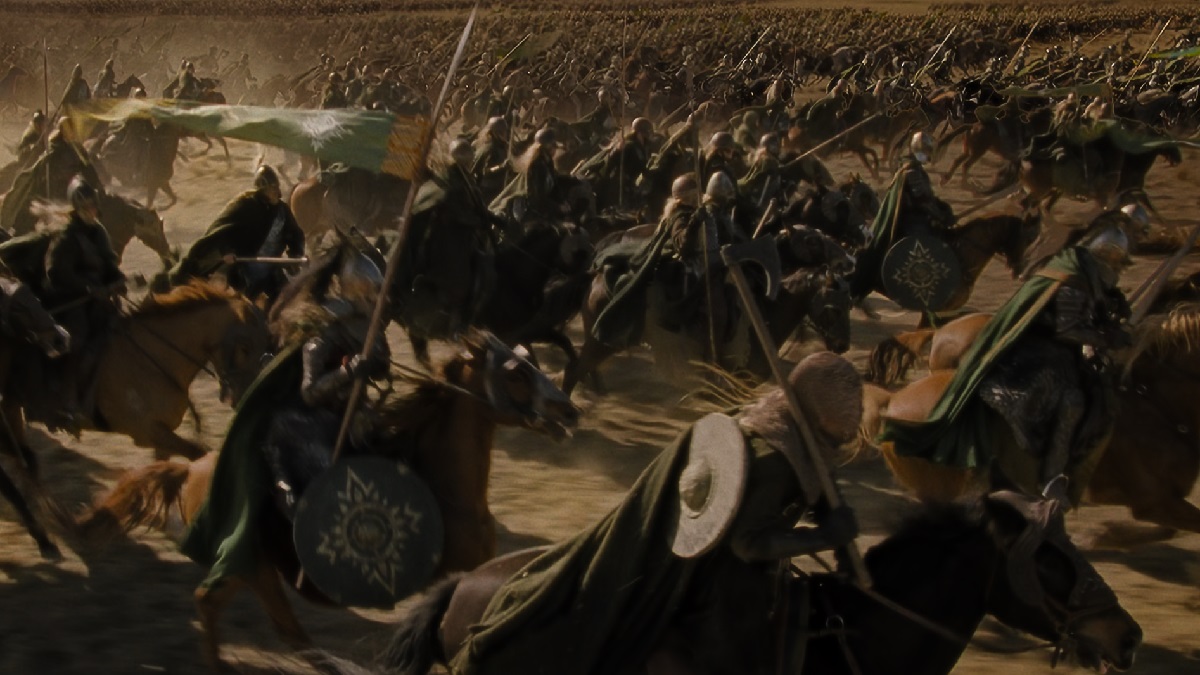While Amazon’s The Lord of the Rings: The Rings of Power has already established the prominent races of Middle-earth and in doing so introduced dozens of characters as a part of its recurring cast, it feels like the story has barely begun to take form.
Many aspects of J.R.R. Tolkien’s fictional universe are yet to be explored, making viewers wonder if they’ll see more familiar faces or cultures in the upcoming seasons. Take Rohan, for instance, the land of the so-called horse people, who had a key role in the War of the Ring and helped defeat Sauron’s hosts in the Battle of Pelennor Fields and the siege of Morannon.
The Rohirrim comprise an important aspect of Tolkien’s legendarium, having been inspired by the author’s own experience with horses during World War I, where officers and their squires had to care for their ride or do without them. The author then drew from his love of the Anglo-Saxon culture and their language to give these once-nomadic people a rich cultural backdrop, turning them into one of the most interesting incarnations of culture and worldbuilding in Middle-earth.
But how and when was Rohan founded? And will we see them in Prime Video’s The Rings of Power?
The House of Eorl and the Éothéod

Back in the early ages of Middle-earth, there was a tribe of Northmen. They hailed from the Edain, the noble humans of the First Age who fought against Melkor, the Black Foe. They dwelt in Rhovanion and mostly kept to themselves through the hardships that befell the world. One of these people was the Éothéod, who lived near the Vales of Anduin in the Third Age. According to The History of Middle-earth and The Lord of the Rings appendix, the Éothéod are the ancestors of Rohirrim, who were, at one point, led by a king called Eorl the Young.
In the year 2510 of the Third Age, a soldier named Borondir Udalraph came to the north to find help for Gondor, which was under siege by a host of Orcs. Eorl rallied his troops and came to the South kingdom’s aid, joining the Battle of the Field of Celebrant and helping to turn the tide.
As a reward for his service, Eorl was granted a large swath of land in northern Gondor. Back then, it was called Calenardhon, but The Lord of the Rings fans know it now as Rohan or the Riddermark. Eorl also made an alliance with the king, known as the Oath of Eorl, which compelled the two kingdoms to come to each other’s aid in time of need. This is also when the beacons of Gondor were built as a means of faster communication between the two kingdoms.
Several hundred years later, King Theoden honored the Oath of Eorl and rode to Gondor’s aid when Sauron’s host besieged it during the War of the Ring. When Aragorn ascended the throne and reunited the kingdoms of Gondor and Arnor, he and Éomer (King of Rohan succeeding Theoden) renewed that pledge.
The ancestors of the Rohirrim in the Second Age

Rohan was founded in the Third Age, but The Rings of Power still has the option to show the Rohirrim ancestors in the Second Age. In fact, you could go as far as the First Age and find the Northmen somehow lingering and thriving under Melkor’s cruel rule over Utumno and the lands surrounding it.
Not much is known about the Northmen in that period, but we do know that they forged an alliance with the Dwarves to protect their kingdoms. When Sauron the Deceiver sent his Orcs to invade the lands in the Second Age, the Dwarves secluded themselves and left these Northmen to fend for themselves. In the end, Rhovanion was overrun by Sauron’s forces until Gil-galad came to liberate it.
As the Prime series has already opted to show the Hobbit ancestors — in an attempt to recreate that image of Middle-earth in the Third Age as much as possible — then it’s entirely possible that we’ll see the Northmen as well. These may not be the badass Rohirrim as we know them, but the same could also be said of the Harfoots or the other races we see in The Rings of Power.
For now, we’ll have to leave the epic cavalry charges to the Númenóreans and hope that the Northmen hold their own in the war to come.

